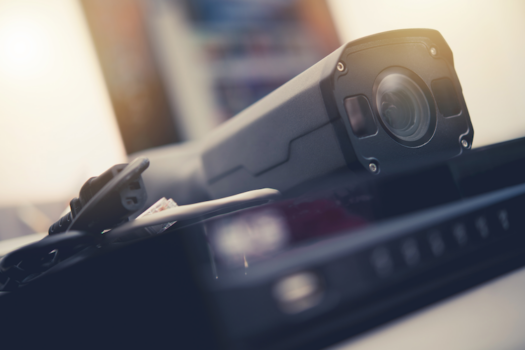
The Supreme Court of New Jersey recently granted certification in Fuster v. Township of Chatham. The question before the justices is whether a body worn camera (BWC) video-recorded statement can be obtained under the State’s Open Public Records Acy (OPRA) or the common law right of access.
Facts of the Case
Plaintiffs Antonio Fuster and Brianna Devine requested, under OPRA and the common law right of access, the release of a body worn camera (BWC) video-recorded statement that Fuster had provided to a Chatham Police Department (Department) officer regarding allegations of sexual misconduct against the Plaintiffs’ special needs son. The statement was recorded pursuant to the Body Worn Camera Law (BWCL).
Defendants, Township of Chatham and its custodian of records Gregory LaConte, denied release of the recording, claiming that the video was confidential. After hearing argument on the order to show cause seeking disclosure, the motion judge found the BWC recording was exempt under OPRA and not subject to release under the common law right of access. As a result, the judge denied the Plaintiffs’ OPRA fee application.
Appellate Division’s Decision
The Appellate Division affirmed. It held that neither OPRA nor the common law right of access compelled release of the BWC recording.
The appeals court first addressed OPRA, holding thatOPRA’s exemption, N.J.S.A. 47:1A-9(b), applies to preclude disclosure of the BWC recording because our case law has long-established that information received by law enforcement regarding an individual who was not arrested or charged is confidential and not subject to disclosure. The appeals court further held that reading OPRA in pari materia with the BWCL demonstrates the Legislature did not intend to preclude the application of OPRA’s exemptions to BWC recordings.
“[A] a review of the plain language of these two statutes, read as a harmonious whole, demonstrates that the Legislature did not intend to preclude the application of OPRA’s recognized exemptions. Rather, under the BWCL, the Legislature: recognized and mandated recordings would not be exempt as criminal investigation records under OPRA; provided specific exemptions for ongoing investigations; and provided confidentiality for qualifying BWC recorded subjects requesting nondisclosure,” the Appellate Division wrote. “The BWCL did not abolish the long-recognized confidentiality exemption afforded to uncharged individuals by judicial case law but preserved the application of existing OPRA exemptions.”
The Appellate Division also rejected plaintiffs’ argument they are entitled to the BWC recording under the common law right of access. “We conclude the common law right of access does not compel release of the BWC recording because under the balancing of interests factors established by our Supreme Court in Loigman v. Kimmelman, 102 N.J. 98, 113 (1986), law enforcement’s and the individual’s interests in confidentiality outweigh the public’s and plaintiffs’ interests in disclosure,” the court wrote.
Issue Before the NJ Supreme Court
The New Jersey Supreme Court granted certification on April 5, 2024. The justices agreed to consider the following question:
Are plaintiffs entitled to this body worn camera recording of an interview under the Body Worn Camera Law, N.J.S.A. 40A:14-118.3 to -118.5, the Open Public Records Act, and the common law right of access? Oral arguments have not yet been scheduled. Please check back for updates.
